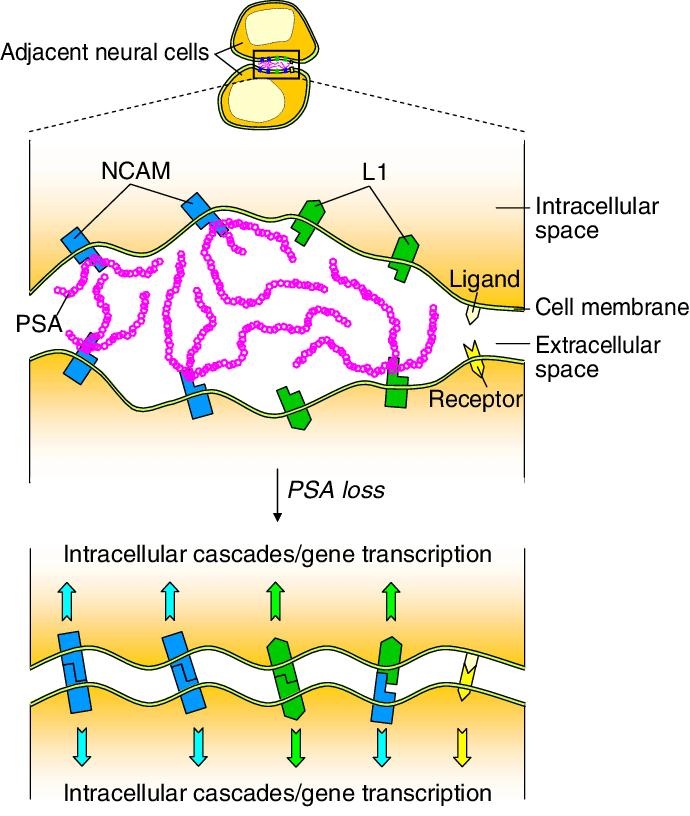A New Biomarker for Targeting Polysialic Acid
Some information-rich sugar molecules modify the surface of normal cells, and the particular information carried by glycoproteins and glycolipids is transmitted to cells to regulate the physiological processes of cells. Polysialic acid is one of the carbohydrates that specifically bind to receptor proteins by cell surface carbohydrate complexes. Polysialic acid (PSA) is a unique class of linear, homogeneous poly α2,8-linked sialic acid compounds, which are mainly attached to neural adhesion molecules in the vertebrate nervous system through typical N-linked glycosidic bonds. Because polysialic acid has a large number of negative charges and is hydrophilic, it will form a larger hydration radius. Therefore, NCAM bound to polysia will increase the distance between cell membranes when interacting with polysia, causing the distance between adjacent cells to be too large to lose adhesion, thus affecting the interaction between cell membranes. Because of this property, polysialic acid plays a crucial role in neural development by altering the adhesion of neural adhesion molecules in the nervous system to regulate neural cell development, neural guidance, and synapse formation.

Polysialic acid is positively correlated with the metastasis of human tumors. If the expression of polysialic acid in human tumors is reduced, the detachment of tumor cells can be reduced, thereby preventing tumor metastasis. Therefore, drugs targeting polysialic acid as a tumor therapeutic target may become a new means of organizing tumor metastasis.
Recently, researchers developed a new, highly selective platform for Polysia structures. This new platform could reach a low nanomolar target affinity. In addition, this new platform contains a cytotoxin that allows it to exert toxicity on positive tumor cells containing Polysia without killing negative tumor cells, thereby aiding in cancer therapy. This platform shows excellent advantages in immunotherapy and has great potential to inhibit tumor metastasis and cancer treatment and design and synthesize related drugs.
The Advantages of this platform include:
- No toxicity to cells
- Accurate selection of cancer-positive cells
- Selective treatment of cancer cells
Potential Applications
- Rapidly detected Polysialic acid
- Optimizing biomarkers for cancer cell diagnosis
- Provide a new method for immunotherapy and drugs targeting
Profacgen is a company dedicated to research in the biological field. We have been committed to discovering advanced experimental techniques to provide stronger support for our customers' research. Please do not hesitate to contact us for more details if you are interested in this new method, and we will provide a considerate service for you. At the same time, we also provide other protein interaction detection methods, please move to our website for more details in protein-protein interaction.
Reference
- Karim, Muhsin & Wang, Bing. (2006). Is sialic acid in milk food for the brain?. CAB Reviews Perspectives in Agriculture Veterinary Science Nutrition and Natural Resources. 1. 10.1079/PAVSNNR20061018.